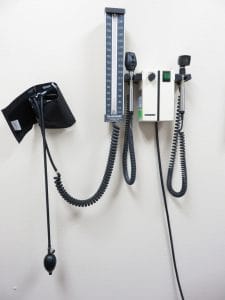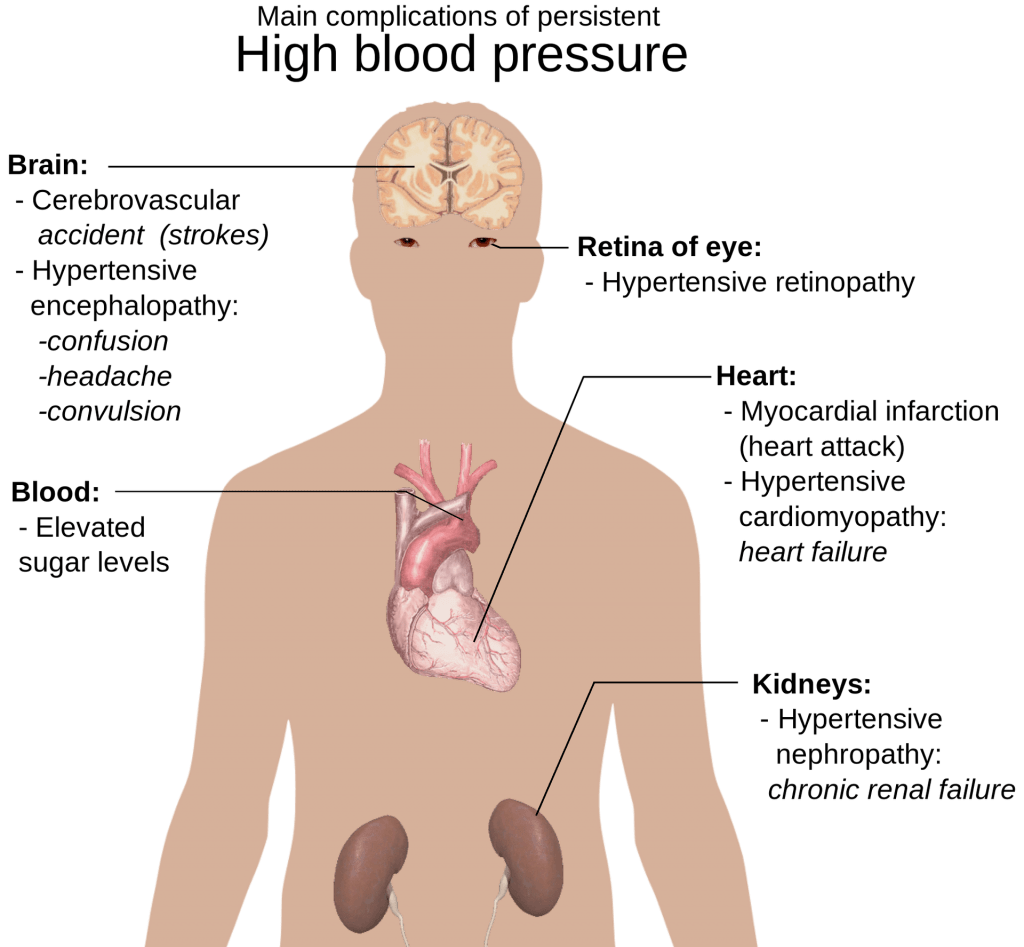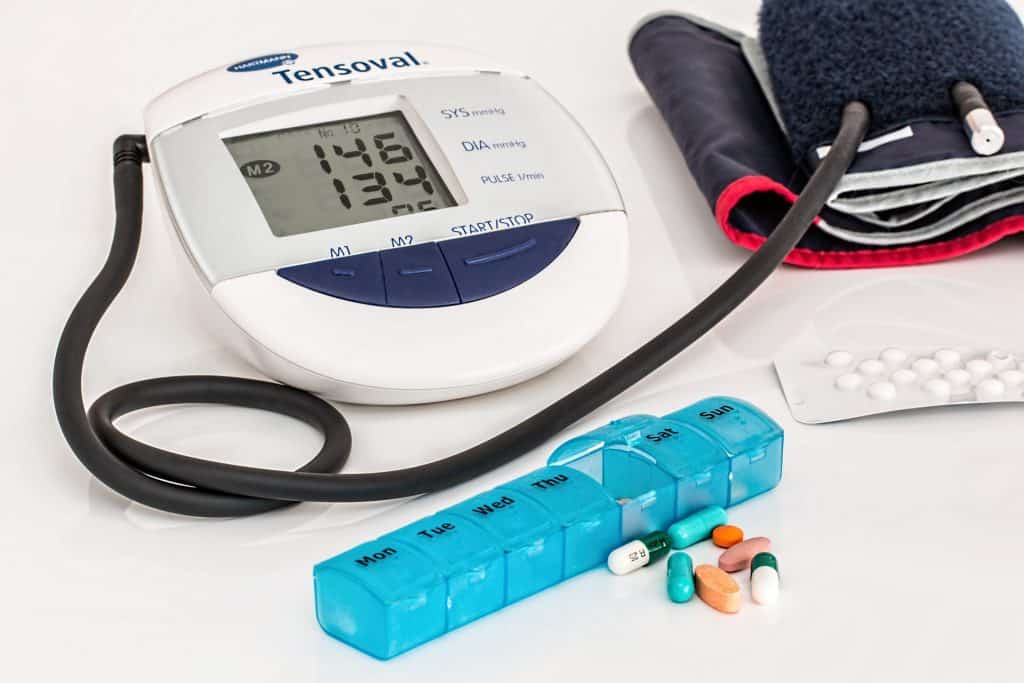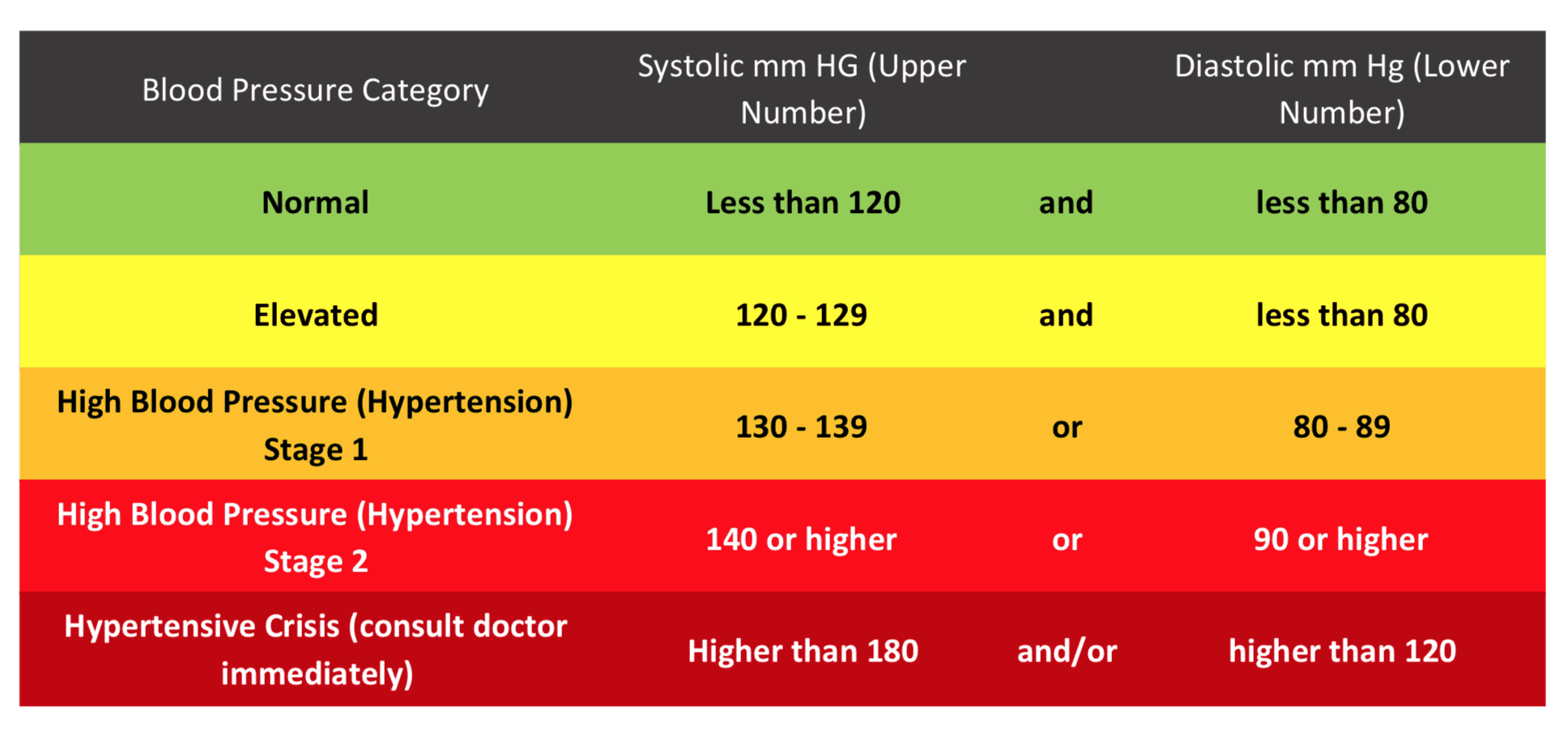High Blood Pressure, or Hypertension, is a long-term medical condition in which the blood pressure in the arteries is persistently elevated. Blood pressure is described by two different measurements – the systolic and diastolic pressures – which are the maximum and minimum pressures. Systolic is how much pressure your blood is exerting against your artery walls when the heart beats. Diastolic indicates how much pressure your blood is exerting against your artery walls while the heart is resting between beats. The units of measurement are typically millimeters of mercury, abbreviated as mmHg or mm Hg.
High Blood Pressure is sometimes called the “silent killer” – because there can initially be no obvious symptoms. But when left untreated, the ongoing damage that high blood pressure does to the circulatory system is a significant contributing factor to heart attack, stroke and other health threats.
What is Defined as High Blood Pressure?
The latest guidelines define Stage 1 Hypertension as blood pressure (for adults) between 130/80 and 140/90. Stage 2 hypertension is greater than 140/90. There are different measurements for children.
Lifestyle changes and medications are typically used to treat hypertension. What recommendations may be made for Stage 1 and Stage 2 Hypertension? The latest guidelines, as published in the Journal of the American College of Cardiology recommend:
- If your blood pressure is between 130/80 and 140/90 (Stage 1 Hypertension), your doctor will suggest: losing weight, exercising, reducing sodium (salt) and eating more vegetables, fruits, and whole grains.
- If you have stage one hypertension and additional risk factors – such as a previous stroke, heart attack, diabetes or kidney disease – you will also be asked to try medication, along with lifestyle changes.
- If your blood pressure is above 140/90 (Stage 2 Hypertension), your doctor will recommend you make lifestyle change and take two kinds of blood-pressure lowering medications.
- Patients already taking medications might be put on higher doses or additional drugs to reach an acceptable blood pressure.
Given that the “silent killer” can exhibit no obvious symptoms, yet causes serious long-term health risk – we recommend you have your blood pressure measured frequently. Know your number, and you can consult your medical doctor as needed.

The Adverse Effects of High Blood Pressure
When left untreated, high blood pressure causes damage to the circulatory system. Over time, it can increase risk of all of the following:
- Heart attack — Damaged arteries can become blocked and prevent blood from flowing to tissues in the heart muscle, causing death to the heart muscle.
- Stroke — High blood pressure can cause blood vessels in the brain to burst or clog more easily – causing stroke.
- Heart failure — Increased workload from high blood pressure can cause the heart to enlarge and fail to supply blood to the body.
- Kidney disease or failure — Damage the arteries around the kidneys and reduce their ability to effectively filter blood.
- Vision loss — can be caused by damaged blood vessels in the eyes.
- Sexual dysfunction — This can be exhibited as lower libido in women or erectile dysfunction in men.
- Angina (chest pain) — Over time, high blood pressure can lead to heart disease or microvascular disease.
- Peripheral artery disease (PAD) — Arthrosclerosis caused by high blood pressure can cause a narrowing of arteries in the legs, arms, stomach and head, and cause pain or fatigue.

Prior to the new recommendations, 140/90 was considered high blood pressure. The new guidelines, published in November 2017, have lowered that. The new guidance, published for medical doctors, also includes tips for more accurately measuring blood pressure.
References and Citations
- American Heart Association – The Facts About High Blood Pressure
- Journal of the American College of Cardiology – 2017 ACC/AHA/AAPA/ABC/ACPM/AGS/APhA/ASH/ASPC/NMA/PCNA Guideline for the Prevention, Detection, Evaluation, and Management of High Blood Pressure in Adults
- Wikipedia – Hypertension


Tim is the founder of FitAtMidlife.com – an avid gym rat for 30+ years, he’s a reviewer of many, many shoes – and founder of the Speed Bag Gathering – the world’s only gathering of speed bag punching enthusiasts. See more gym reviews at Tim’s YouTube channel.




